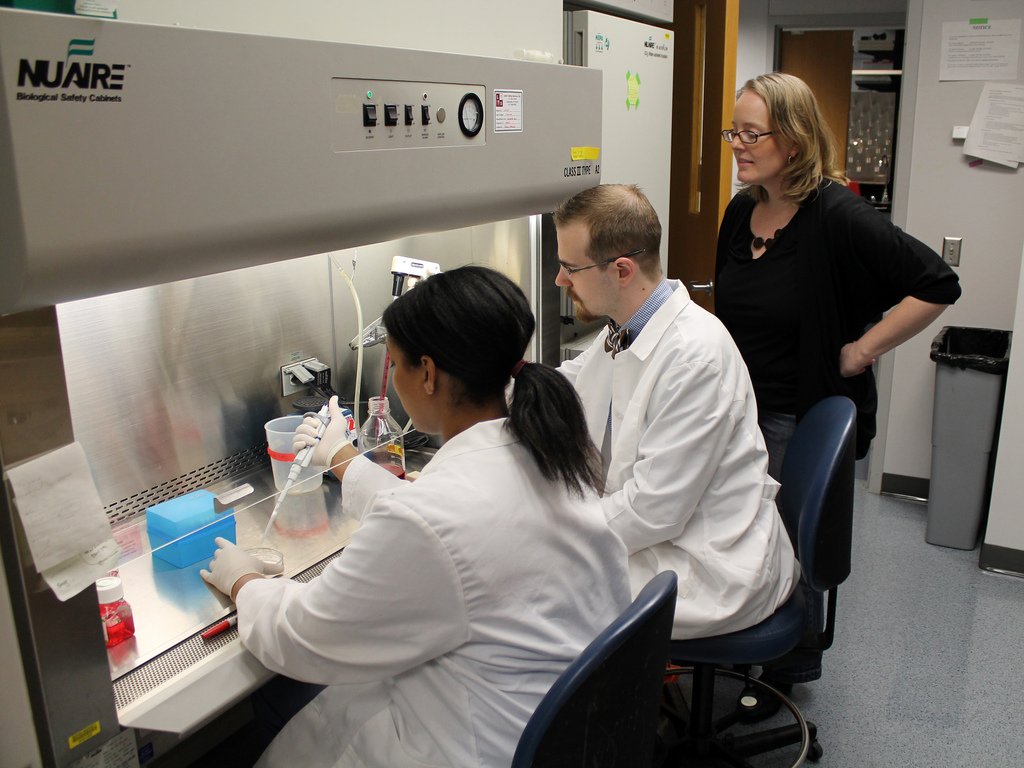For a lot of young scientists, landing a job in big pharma is the dream. Companies like GlaxoSmithKline and Roche who are deeply rooted in the pharma industry, have the infrastructure and diverse product line to accommodate new talent.
But Francisco Lio does not share that dream.
“I’m a strange critter because, in my whole career, I’ve only worked at small companies,” he said. “I’ve always wondered what the big pharma world would be like…For me, I love the small company environment.”
Lio is the Head of Program Management and Strategic Management at Neuropore Therapies, a San Diego-based early drug development company which specializes in disease-modifying therapeutics for neurodegenerative diseases. In an interview with Xtalks, Lio tells us that his first job out of college was at Neurocrine Biosciences, a company with no more than 70 people.
It’s not easy transitioning out of college into your first job, especially if you do not have any relevant job experience. While some of his peers opted for the Biomedical Graduate Program at his alma mater, the University of California San Diego, Lio decided to explore a career in pharmaceuticals at Neurocrine.

For seven years, Lio conducted assays and made drug discoveries for various neurological and endocrine disorders. As a young scientist, this type of work stimulated his curiosity, leading to an appreciation of how drugs work and how they’re designed to meet medical needs. Over time, however, he developed an interest in things outside the bench.
“I realized that it took different types of expertise from different backgrounds to conduct the different stages of development and commercialization,” he explained. “[From talking to people at Neurocrine], I [learned] that there were people [who] coordinated the whole process and were able to engage with a product through its lifecycle. I found that through project management.”
It’s helpful to develop business acumen when switching into a project management role. After all, your job involves managing budgets, timelines, talking to stakeholders and overseeing different teams.
While many of these skills can be learned at school, it’s still a challenge to acquire relevant experience. Lio turned to colleagues and managers to learn more about what the job entails and figure out how to make his next career move. These mentors played a pivotal role in connecting him to the right opportunities.
“[In addition to completing project management certification at UCSD], I worked with my supervisor and department head of Neurocrine [at the time], R. Scott Struthers. He was very supportive of me developing a career in project management. He afforded me certain opportunities in project management to sharpen my skills.”
Lio credits a lot of his success to mentors including Professors Laurence L. Brunton and Palmer Taylor from UCSD and members/leaders at his first (ACADIA) and second (Prometheus Laboratories) project management jobs.
At Neuropore Therapies, Lio draws from his project management experience and 15 years of research experience to excel at his current role. In addition to overseeing the company’s drug pipeline projects, he conducts different business development activities and has corporate operations responsibilities. This includes an exhaustive list of budget balancing, cross-functional team management, webpage design, procurement management, and organizing company parties. It’s typical for one person to wear multiple hats at a small company.
“Everyday is different and it’s full of rich experiences,” he said matter-of-factly. “I do what the company needs. I stay practical; I try to adapt [to] the current times.”
At the same time, working at a small company can be demanding and challenging.
“One of the challenges with being a small company such as Neuropore, is that you don’t necessarily have teams or the infrastructure that bigger companies have,” he continued. “You’re completely responsible for the successful trajectory of a project and completion of a project with successful outcomes.”
To be successful in project management, Lio says good communication is key. In his role, he deals with external teams who may not share the same values or have the same sense of urgency as he does.
“You have to be effective at translating what you need into fruitful work, without impacting (wearing out) your relationship with those people,” he said.
But the challenge is also what he thrives on. He hopes to become a C-suite executive one day, an ambitious goal, even in his eyes. But with hard work, tenacity and a broader skillset, he is determined to achieve this goal. Just as he went back to school for a certificate in project management, he hopes to go back to complete a Master’s of Business Administration in hopes of bridging the gap in his skillset. As he moves upward in his career, he reminds himself to always do what he loves.
“There needs to be balance. If you always aim to connect what you know how to do [with] what you love to do, then that’s what’s satisfying. I want to move up with the satisfaction that I’m enjoying what I’m doing and I’m doing things with integrity and passion… Altogether, I know that I want to reach the top but I want to enjoy the hike.”
When asked if he would consider a career in big pharma, he replied, “I think if the opportunity presents itself, I would consider it. But I also find that my colleagues are from big pharma, and we all learn from each other. There is something special about the small company environment that brings balance to people who just have experience in big pharma.”












Join or login to leave a comment
JOIN LOGIN